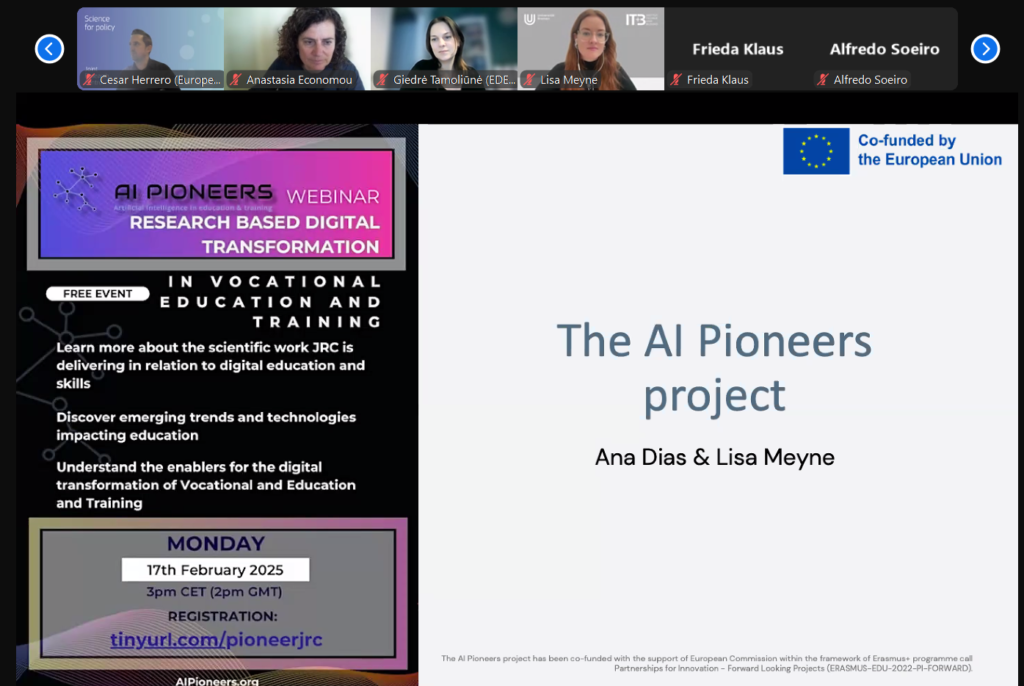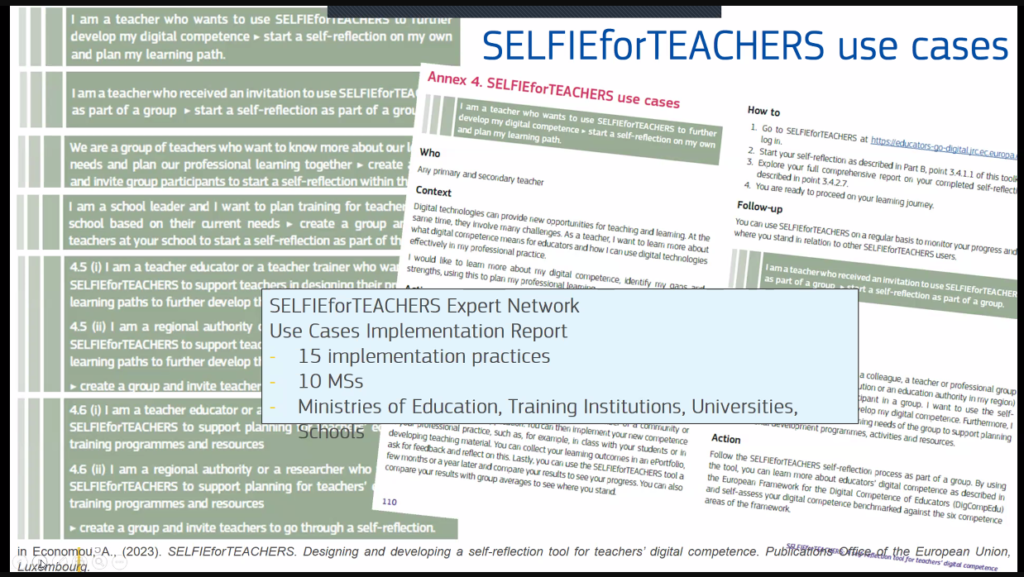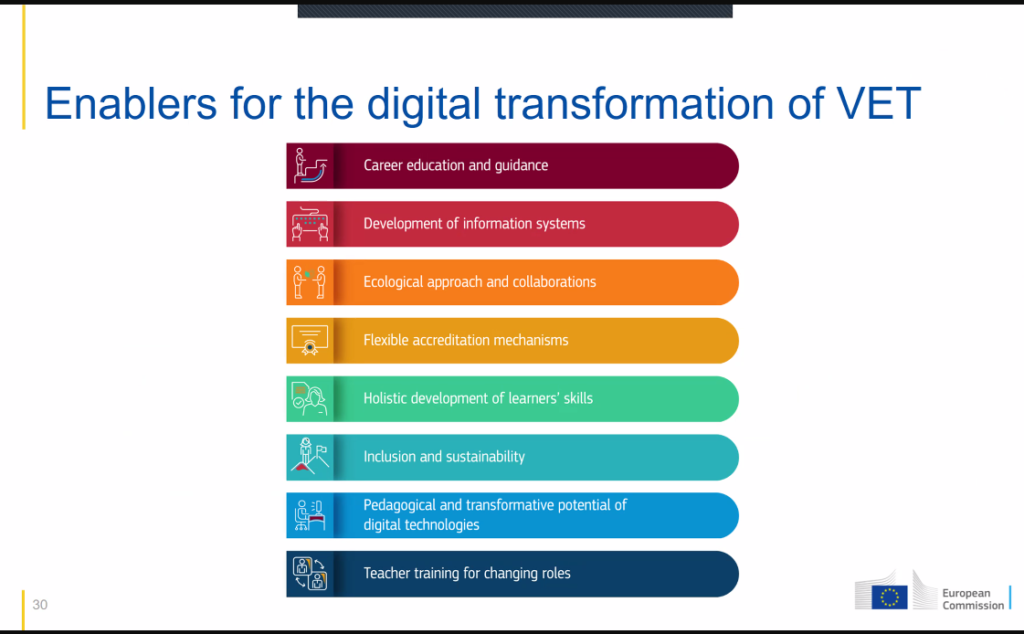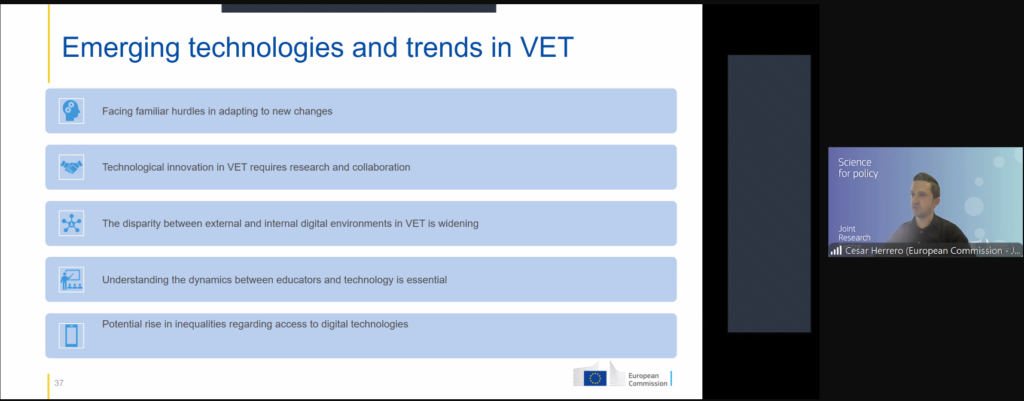Webinar recording with JRC: “Research-Based Digital Transformation in VET”
On February 17, we had the pleasure of hosting a webinar “Research-Based Digital Transformation in Vocational Education and Training,” with guest speakers Cesar Herrero and Anastasia Economou from the European Commission’s Joint Research Center (JRC). The session explored how evidence-based research is influencing the future of education and skill development across Europe.

Anastasia Economou introduced DigCompEdu and SELFIE for Teachers, a scientifically developed self-reflection tool rooted in the DigCompEdu framework, designed to help educators strengthen their digital competence. She shared key insights from a multi-case study examining how the tool enhances teachers’ agency and self-efficacy. The discussion also brought attention to the personal, institutional, and systemic challenges that may hinder teachers from acting on the tool’s feedback and what conditions enable its effective use.

One of the main takeaways was the growing urgency to rethink educators’ digital competence, especially in light of the rapid evolution of Generative AI. The conversation also emphasized the need for AI regulation in education with a human-centered approach, ensuring human rights and agency remain at the core. The role of lifelong learning emerged as another critical factor, as individuals need continuous upskilling to navigate an AI-driven society. Educators, recognized as key figures in preparing future citizens, must receive adequate support in developing their digital competences.
Although SELFIE for Teachers is primarily focused on school-level education, it provided valuable lessons on structuring professional learning and digital competence development for VET professionals at both institutional and policy levels.
Cesar Herrero presented a self-reflection tool for VET institutions and companies (work-based), helping bridge EU initiatives between general education and vocational education and training. He discussed the essential enablers for digital transformation in VET, including career education and guidance, information system development, ecological approach and collaboration, flexible accreditation mechanisms, holistic development of learners’ skills, inclusion and sustainability, pedagogical and transformative potential of digital technologies, and the teacher training for changing roles.

The session explored emerging trends and technologies shaping VET, including shifting job landscapes where cognitive occupations are increasingly at risk, the growing importance of soft skills, and the potential of blockchain-based credentialing systems. The discussion covered everything from open educational practices to employer engagement strategies, emphasizing how digital tools can enhance both learning experiences and institutional management.

Participants engaged in discussions about future research directions and JRC approach towards helping educators and institutions navigate the many existing frameworks for digital competence development.
If you missed this discussion, you can watch the full recording on our YouTube channel.

